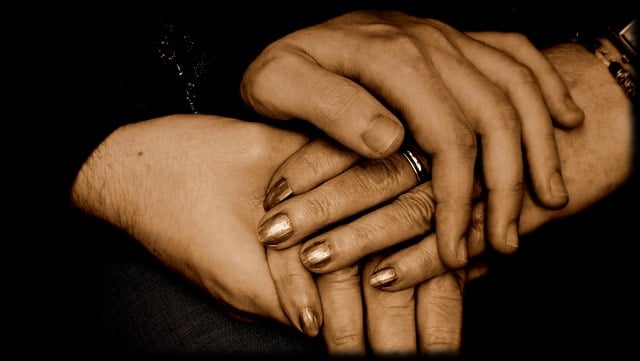
by ThinkSayBe | Dec 18, 2015 | 2015, Awareness, Being Considerate, Human Rights, Humanity, Independence, North America, Prejudice, Refugees, Relocating, Social Equality, ThinkSayBe, USA, World Motherhood

On November 26, 2015, here in the USA there was a celebration. It is called Thanksgiving. Thanksgiving is celebrated by many Americans as a day when the ‘Injuns and pilgrims feasted together in harmony’. When possible, families gather to spend the day eating a plenteously-sized meal, and go over the things for which they are thankful.
When I came to the U.S. I heard of a couple of stories behind the meaning of Thanksgiving. I heard it marked a day in American history when pilgrims came from England and after having being helped to plant food by some Natives, they all gathered and had a big feast with the first harvest. I was also told that there was an exchange in which the Natives gave the English food like wild game, and the English gave the Natives blankets contaminated with smallpox which wiped out almost an entire First Nation. So it is that without researching further, I knew I didn’t want to celebrate this particular thanksgiving day without looking into its history first. I was okay with my family gathering, eating good food, and giving thanks for all that I had. I just wasn’t about giving thanks for the planned killing of anyone.
During the course of my life I have figured out that I am too idealistic. I am also fairly optimistic, so saying that I am ‘too’ idealistic feels wrong. However, as life has proven, I am too much of an idealist. That’s okay; I am still staying true to that for I am sure there is purpose in it, and I am rewiring some other thinking patterns. All this to say, that by the time I heard of the smallpox story, I knew there was a great chance that this had actually happened. The idealist in me immediately asked why any human would cause suffering and death to his fellow, but Sophia the realist started going down a list of atrocities that she knew about, that would make this new information less shocking.
The research I did before was in books I do not recollect the titles of. I presently did some more research, though, and I came across a story that an educator put together so the truth about the First Thanksgiving day may be shared with elementary school-aged children. With this story there were books cited and more information given in a more graphic manner than that written for young children.
I read the article and I leave it to you to read it as well. As I scrolled down and read more, I read the following paragraph and immediately I thought about the current situation in Syria, its people who are fleeing war seeking refuge amongst other human beings, and how many of said other humans are responding to this need. This paragraph reminds us of the history of U.S. Americans’ Anglo-Saxon ancestors, and so it is ironic that any of their descendants should feel okay saying Syrian refugees aren’t welcome to this land.
“….The Puritan “Pilgrims” who came to New England were not simply refugees who decided to “put their fate in God’s hands” in the “empty wilderness” of North America, as a generation of Hollywood movies taught us. In any culture at any time, settlers on a frontier are most often outcasts and fugitives who, in some way or other, do not fit into the mainstream of their society. This is not to imply that people who settle on frontiers have no redeeming qualities such as bravery, etc., but that the images of nobility that we associate with the Puritans are at least in part the good “P.R.” efforts of later writers who have romanticized them.(1) It is also very plausible that this unnaturally noble image of the Puritans is all wrapped up with the mythology of “Noble Civilization” vs. “Savagery….” Chuck Larsen quoting Berkhofer, Jr., R.F., “The White Man’s Indian”.
ΔΔΔ
We were driving by downtown the other day (what city is irrelevant) and saw people standing by the side of the road with signs reading ‘Refugees are not welcome here’. Immediately my mind rewound to when outcasts from England came here, and it is their descendants who are now standing on the side of the street saying they don’t want refugees here. These current refugees aren’t even outcasts, they are simply people who are no longer safe in the country they know as home. I say this very simply because I cannot pretend to understand what Syrians and all people in the middle of war zones are going through. Many Americans can afford to feel so detached because the war isn’t on American soil. However, we are at war, and the side of war we do not see here, is the side where there are humans who are suffering and dying. It’s easy to not put ourselves in other people’s shoes when we don’t see or know what they are going through. To feel anything but heartbreak or anger when seeing footage of women, children, and men being carried…body parts dangling, faces torn…. of children’s bodies washing up on shore or lined up with other dead children’s bodies… to know that there are humans who feel something other than heartbreak or anger, and who instead feel good as if these ‘strange people from a foreign country’ deserve it, is heartbreaking! It’s the kind of thing that makes me ashamed of being human. We have become so accustomed to these imaginary lines dividing our world, that we believe they are actually real. Otherwise, how could we feel anything but compassion for a father trying to find refuge for his remaining family?
I know I think too ideally. I know this. And I also know that because of this I tend to leave challenging questions and conversations alone. Truth is, though, that as a person I am hurt every time I see a sign/banner, a meme, or other social media image, saying something negative about a refugee. It’s like there is no compassion and history is forgotten. Actually… history isn’t forgotten. History is re-written; which is why the truth about Thanksgiving is not told in schools. It is changed a little, and changed a little more, until it is just the nice Pilgrims and the Indians who were sharing a nice harvest feast. This is why people forget where they came from, and this is part of the reason why when it comes to deciding whether or not we would welcome a refugee into our city or country, we feel comfortable and proud in saying “No, refugees are not welcome here!”
Ultimately my point is this: We are human. All of us. Chinese, Kenyan, Norwegian, Sioux, Japanese, Syrian, Mexican, Goan, etc… etc… etc…
We are all… human. How dare we not extend our hand in support of our fellow human in need?
Let’s not forget where we have come from, and let’s work together to build a better humanity. For those of us feeling a bit more self-assisting than altruistic (for whatever the reason), it may be good to remember that helping another person makes us feel good inside. If we were to die the moment after helping another living thing (human or otherwise), maybe our sincere moment of kindness would redeem us from other times when we weren’t so kind. Thus it is that extending our hand to someone in need is a win-win.
Hopefully, if there ever comes a time when we need help, someone will reach out and say “Come, you are welcome here.”
Are you and idealist or a realist? How do you feel it affects how you think about world issues?
Photo credit to
Rakel Sánchez. This photo has a creative commons attribute license.
I am a mom amongst some other titles life has fortunately given me. I love photography & the reward of someone being really happy about a photo I took of her/him. I work, I study, I try to pay attention to life. I like writing. I don't understand many things...especially why humans treat each other & other living & inanimate things so vilely sometimes. I like to be an idealist, but when most fails, I do my best to not be a pessimist: Life itself is entirely too beautiful, amazing & inspiring to forget that it is!
More Posts
Follow Me:


by Marie Kléber | Dec 7, 2015 | 2015, Awareness, Childhood, Culture, Death and Dying, Education, Europe, France, Gun Violence, Identity, Life, Life Lesson, Media, Motherhood, News, Parenting, Peace, Respect, Responsibility, School, Stress, Terrorism, World Motherhood
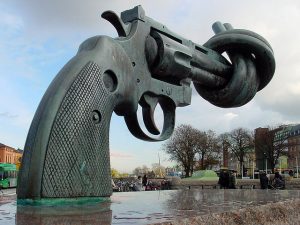 …and prevention is protection.
…and prevention is protection.
Now-a-days, we hear a lot about violence. Violence at home, bullying at school, harassment at work or on the street. Violence is everywhere. It does not define our societies or who we are but it plays an important role in our evolution and how we decide to define ourselves.
In the past couple of years, the French government put into place important measures to fight all types of violence, creating adds to show its impact on peoples lives, opening more helplines, dedicated centres to welcome the victims, creating new jobs and training programs. Many well-known artists took it over and started campaigns around the country and in the world.
Still, I think something is missing in order, if not to eradicate violence completely, at least to change the vision of men and women on the subject and prevent violence from spreading even more. Before discussing the impact of violence, people first have to be educated on what violence is, how to spot it and how to protect themselves from it.
We tend to think that violence is only physical. Is it something we learn as kids? Or are the other forms of violence too cruel to be true?
I met women who kept telling me that in their case, it was not violence. I met kids who kept telling me that other kids were just laughing at them, no big deal. I met men who kept telling me that if their bosses were that mean towards them, it was maybe because they were not that good.
If people don’t know or understand that the relationship they are in is poison, they won’t be able to get out of it or ask for help. And it will keep destroying them. Ads or campaigns won’t have any impact on their life. They will still think violence is horrible but they will think it has nothing to do with them.
I suppose we have to educate people from a young age. Maybe school is the first place to start, as violence can take root there for many. Teaching kids about respect and differences. Teaching them about what is not allowed, about their body and about the importance of equality. Boys are not better than girls and girls are not better than boys.
But first, we have to teach kids about confidence. In most cases, it’s the lack of confidence that takes people down. Teaching kids that they are important, that they are valued and loved, that they are worth it, beautiful, enough. I think this is crucial and it can change many things in our world these days.
I don’t say that confident people can’t be touched by violence, but they’ll have the resources, the power to face it and say stop to it. Or they’ll know something is wrong in the equation and they’ll be able to talk about it, to raise their voice.
Because, at the end of the day, silence is really the enemy, silence is what allows violence to thrive.
This is an original post from our contributor in France, Marie Kleber.
The image used in this post is attributed to Cyber Magic. It holds a Flickr Creative Commons attribution license.
Marie is from France and is living near Paris, after spending 6 years in Irlande. She is a single mum of one, sharing her time between work, family life and writing, her passion. She already wrote 6 books in her native langage.
She loves reading, photography, meeting friends and sharing life experiences. She blogs about domestic abuse, parenting and poetry @https://mahshiandmarshmallow.wordpress.com
More Posts - Website

by Alison Fraser | Dec 1, 2015 | 2015, Awareness, Being Considerate, Canada, Caring, Family, Global Citizenship, Global Goals, Happiness, Holiday, Humanitarian, Philanthropy, Social Good, World Voice
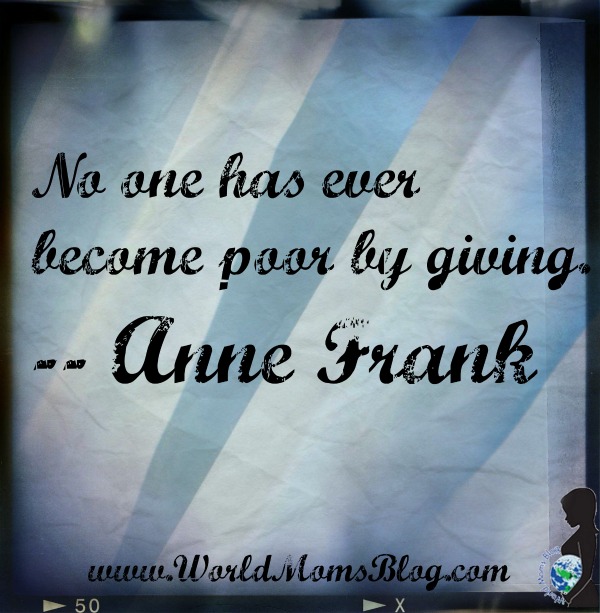
Typically, after Thanksgiving in the United States, the following Friday and Monday, known as Black Friday and Cyber Monday, kick off the holiday shopping season. Black Friday, in the stores and Cyber Monday, online. However, Giving Tuesday follows and is what now kicks off the holiday “Giving Season.” This movement has been around for several years already.
With so much poverty around the world, the fact that a movement, based entirely on the giving of time and money, is gaining momentum gives me great hope. Did you know that you do not just have to give money on Giving Tuesday? You can, instead, donate your time. This means many more of us can get involved.
How great is a movement that the whole world can participate in as a collective unit with one goal in mind: to give?
So take today to think about the something you want to change most in the world. And give. Give of your money. Give of your time. Give only what you can. From around the world to your local community, find out how you can participate today, Tuesday, December 1st.
As each year of Giving Tuesday goes by, more and more organizations are getting involved, which plays at my heart strings. For example, here, in Canada this is the first year that Waterloo Region in Canada will be launching Giving Tuesday in an official manner. The community is rallying around local groups and causes in a way that I would never have imagined!
Let’s kick off the giving season and make this the most memorable Giving Tuesday the world has known to date.
A Note From our Founder:
Today, World Moms Blog asks our readers to consider volunteering, donating and/or advocating for these 4 organizations that have been created by our contributors or employ them. Click on over to see why they are worthy of your #GivingTuesday love!
- Mom2Mom Africa helps to educate and provide a better life for children in Tanzania. What started as a penpal project of a mom in Canada, turned into an education sponsorship program, a school being built, class trips provided and much more!
- Cleanbirth.org, which helps to provide a safer birth experience for mothers in Laos through clean birth kits and nurse midwife training. Started by an American mom who pledged to single-handedly take on poor maternal health statistics.
- The Advocates for Human Rights is the workplace of our resident contributor and human rights lawyer. The organization provides opportunities to volunteer, donate and/or advocate for their life saving and life changing work to help people worldwide.
- Edesia makes Plumpy’Nut which helps provide nutrition for children who need it most in the developing world. And did you know that our Managing Editor works there in digital media?
Tell us what you’re doing for Giving Tuesday…
This is an original post to World Moms Blog by contributor, Alison Fraser, in Canada.
Alison Fraser is the mother of three young girls ranging in age from 5 to 9 years old. She lives with her family in Cambridge, Ontario, Canada. Alison works as an Environmental Toxicologist with a human environment consulting company and is an active member of the Society of Environmental Toxicology and Chemistry (SETAC). She is also the founder and director of the Canadian Not for Profit Organization, Mom2Mom Africa, which serves to fund the school fees of children and young women in rural Tanzania. Recently recognized and awarded a "Women of Waterloo Region" award, Alison is very involved in charitable events within her community including Christmas Toy and School Backpack Drives for the local foodbank.
More Posts - Website
Follow Me:



by Ann Marie Wraight | Nov 30, 2015 | 2015, Advice, Awareness, Being Considerate, Being Thankful, Caring, Childhood, Death and Dying, Europe, Gratefulness, Greece, Grief, Identity, Life, Life Lesson, Memories, Motherhood, Parenting, Relationships, Responsibility, Tragedy, World Motherhood, Younger Children
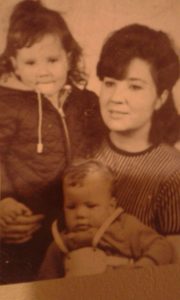
The last photo of the author and her brother with their mom.
There once was a little girl who lost her mother. She was too young to fully understand the concept of never. She had a secret belief that people were making a silly mistake when they gently explained that her mommy would never be coming home again.
The little girl secretly believed her mommy had just taken a long vacation. Her Daddy told her that Mommy was in a special type of hospital for people who were sick and needed to rest.
Since the little girl was smart and precocious, she imagined her mother had taken a much needed rest and gone on holiday with the traveling circus, which recently had been in town. Hadn’t Mommy admired the clowns and acrobats SO much? Wouldn’t this be a great way to get better after all the medicine the little girl had secretly seen her mommy take when she thought nobody was watching…
As the months and then years dragged on and Mommy didn’t come back, the girl started to realise that the traveling circus probably wasn’t the reason her mother had left.
Instead, she started to suspect that her parents had gotten a divorce and her father had custody of the 2 children since his wife was sick. This had happened to a boy in the little girl’s class at school.
She still couldn’t accept the fact her mother was gone for good.
Things began to get difficult at home and at school too. At first the other children were sympathetic because their teacher had told them that the little girl was going through difficult times at home and needed help and understanding from her classmates.
Eventually though, when the girl started coming to school with untidy hair and wearing grubby, mismatched socks, most of the kids started calling her names and telling her she was a freak.
She DID look and act weird, she knew. The sad truth was that she FELT like a freak, and that was even worse.
When other girls went on sleepovers and to birthday parties, on shopping trips and visits to the local swimming pool with their moms, the little girl wasn’t invited. The mothers felt awkward and embarrassed trying to organise these things with the girl’s father. The father said he needed his daughter to stay home and look after her little brother and he couldn’t spare her as he had to work. After a few kind attempts, the invitations dried up.
Although help was offered to the father at first, his depressed and confused mental health gradually repelled those who were trying to help him support his 2 young children. After losing all of his teeth and most of his hair due to extreme stress, he realised he couldn’t cope alone anymore. He suffered a nervous breakdown and was forced to go back to his country of origin to seek help from estranged relatives.
This is the traumatic beginning of my early life and the reason I lived in a fantasy world following the death of my mother, when I was just six years old.
My family had left England a few years earlier and gone to live in Australia for a better life. We really did have a perfect lifestyle for a couple of years until my beloved mother became sick and died of cancer before the age of 30.
I remember with utmost shock how I refused to believe my mother was actually dead. I’m staggered now at how I stubbornly clung to elaborate fantasies about her REAL whereabouts and my utter refusal to grasp reality.
The other thing I remember with clarity is the nastiness of some and the true kindness of others.
Although virtually everyone was supportive and helpful at first, this really didn’t last long. After a relatively short period of time, I became an object of ridicule and target for bullies. My father was going through his own catastrophic demise and I basically had to fend for myself as well as bring up my younger brother.
It’s not easy for a 6-and-a-half-year-old to cook, clean and look after herself and her 4-year-old brother as well.
I went to school looking unkempt and bedraggled most of the time and the fantasies I told about my mother must have scared my schoolmates, who knew she had passed on. I was called names and kids threw stones at me because I was so different from them. In my class I was the only one from a single-parent home at that time.
Nowadays, of course, single-parent families are commonplace. Back then it wasn’t the norm and other kids made me feel that somehow it was my fault; I was stigmatized.
Coming from another country and speaking with a different accent didn’t help either. I was unacceptably different on so many levels.
When I first met my Greek husband decades later, one of his relatives praised him for being such a good Christian, offering to marry not only a foreigner but an orphan too!!!
It seems that in many cultures the child is responsible and pays for the parents “crimes.”
I remember a limited amount of kindness during my formative years and so try my best to instill a sense of compassion and respect for ALL living things in my children. I tell them that it really doesn’t matter how many possessions a person has that gives them value but how they treat others that counts. The way they interact with others is the true measure of their worth.
As a result of my childhood, I know that the kindness and compassion we show to a person can shape their whole future, for better or worse.
If we could all impart this wisdom in our children, wouldn’t the world be such a better place?
Have you had any childhood traumas that have made you passionate about something in adulthood? How do you encourage your kids to show kindness to others?
This is an original post to World Moms Blog from our contributor in Greece and mum to two, Ann Marie Wright.
The image used in this post is attributed to the author.

Having lived in 4 different countries, Ann Marie finds it difficult to give a short answer about where she's from. She regards herself: Brit by birth, Aussie by nature, with a sprinkling of Greek and German based on her insatiable appetite for tasty food and chilled beer!
This World Mom has been married to her Greek soulmate for 16 years and they are the proud but constantly challenged parents of two overactive teenage boys. (She secretly wonders sometimes if she was given the wrong babies when she left the maternity clinic.) She can't explain the fascination and ability that her 13 and 14 year-olds show in math and physics or that both boys are ranked 1st and 2nd nationally in judo. Ann Marie can only conclude that those years of breastfeeding, eating home cooked meals and home tutoring really DO make a difference in academic and physical performance! The family is keeping its fingers crossed that---with the awful economic crash in Greece---continued excellence in math and/or judo will lead to university scholarships...
In addition to writing, enjoying a good glass of wine and movies, Ann Marie also works as a teacher and tends their small, free-range farm in the Greek countryside.
More Posts
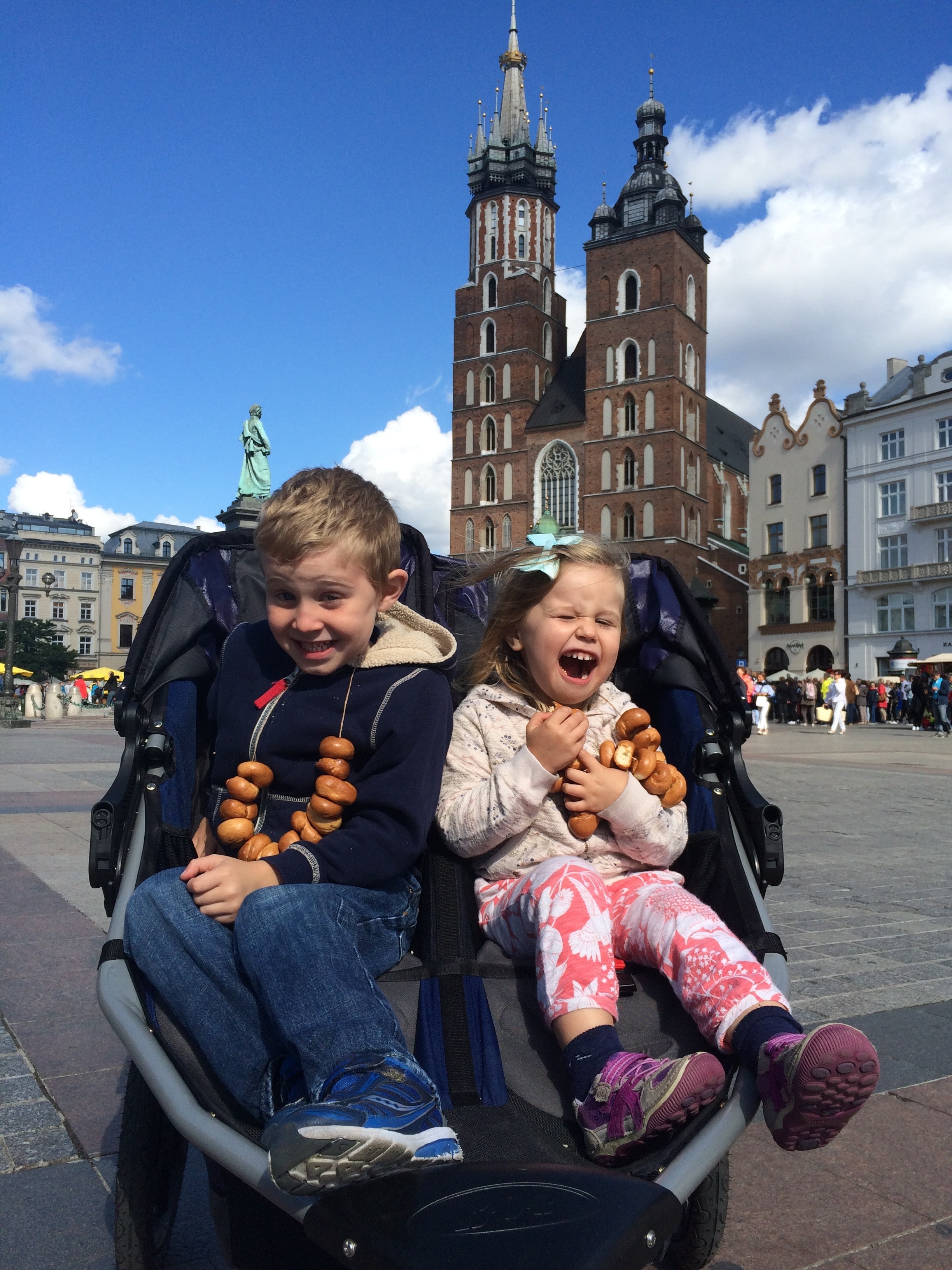
by Loren Braunohler | Nov 23, 2015 | Advice, Awareness, Being Thankful, Caring, Childhood, Europe, Expat Life, Family, Happiness, Independence, Life Lesson, Milestones, Motherhood, Parenting, Poland, Priorities, Responsibility, World Motherhood, Younger Children
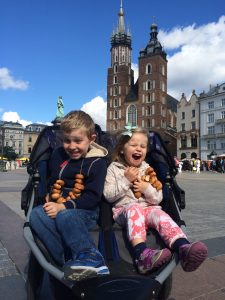
Can we just stay in a world where bagel necklaces solve all of our problems?
Shocked. Confused. Completely taken aback. That’s what happened the other day when I was watching my two young girls on the playground and elementary-aged kids came out to play. Horrible language, bullying, and throwing around malicious comments about looks, behavior, and sexual orientation.
Those words. Those attitudes. That scrutiny. I was so suddenly jolted from my innocent little world of swings and sand castles and hoisted into a “big kid” universe that I was disbelieving of what was happening around me.
I had so many questions. How do these kids even know these words? Should I do something to intervene? And then the realization hit. My children, now ages 5, 3 and nearly 2, will be thrown into similar situations in the not-so-distant future. And what would they do in this situation? Have I taught them to respect others? To be the right kind of friend?
And close behind became a second epiphany. These are the days. The days to appreciate. The days not to take for granted. I think I have problems when my 20 month old won’t go down for a nap on the first try. Or when my kindergartener drops an entire box of Cheerios on the floor. When my three-year old refuses to wear anything but her Olaf sweatshirt. When my toddler eats Play Doh. Problems. These are our “problems.”
Sometimes I find myself complaining, maligning the fact that my children can’t quite do things for themselves yet. After my encounter on the playground, I’ll keep my problems and multiply them by one hundred before wishing for my kids to grow up.
Yes, I’ll happily read “Old McDonald Had A Farm” 100 times in a row, help you put on your socks and velcro your shoes, and carry you when you are just too tired to walk anymore, because these “problems” are not really problems at all. They are tiny – nearly microscopic – bumps in the road to becoming independent.
And as not-so-subtly thrown in my face that day on the playground, I realized that as children grow up, their problems become more delicate, emotional, and serious. The problems that they face are more complicated and likely to impact others.
Can someone please find a way to make time stand still? Because I don’t want to get to the more serious stuff. I want them to stay young, innocent, and oblivious to mean behavior, bad language, and unforgiving situations. And I want my problems to revolve around Cheerios and Play Doh rather than the much, much harder stuff.
But try as I may, I can’t freeze time. They will grow up and make choices on their own. And when they reach that point, my hope is that the example I have set for them is to be kind; love others; empathize; have unwavering confidence in who they are; and surround themselves with the right people. If they adopt that attitude, maybe we will be able to navigate the real problems with greater ease.
Just a few weeks ago, I volunteered to read to my son’s class. He proudly sat in my lap as I read, and when we left school that day, he asked, “Mommy, can you go on the next field trip with us? You know mommies are allowed to go on field trips.” It didn’t take me long to find a babysitter for my younger two so that I could chaperone his next trip.
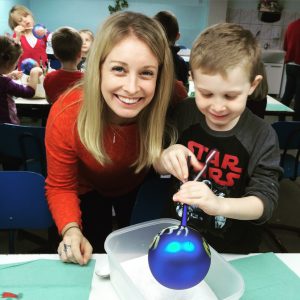
Happy to chaperone my son’s field trip to the ornament factory
I’m not going to let these days pass me by – these days when they are impressionable, eager to listen and learn, and want me around. I’m going to use them as wisely as I can. Instead of thinking I have problems when my toddler throws her winter hat off for the tenth time in one day or my three year old melts down when her brother doesn’t bring her something from the school bake sale. I will think about how trivial our “problems” are in comparison to the more grown-up situations they will soon face.
And I will use the extra time I have not obsessing over the small things but to teach them how to embrace the qualities that will serve them well on that critical day when they have to start making important choices on their own.
This is an original post to World Moms Blog from our mom to three and writer in Poland, Loren Braunohler.
The images used in this post are attributed to the author.

by Nihad | Nov 12, 2015 | 2015, Awareness, Egypt, Middle East, Peace
World Mom, Nihad, is a life coach in Alexandria, Egypt at Aurora Beams Life Coaching. Today, she is on the blog helping moms around the world find their inner peace when times get tough through some tips she learned from a recent webinar with life coach, Mary Allen.
Sit back, take a deep breath in, and read…
Hello, World Moms!
“How easy can you find your inner peace in challenging times?”
Do you find that you “lose it” when things get tough? That finding your center is impossible when things don’t go as planned? Maybe the kids are fighting. Or the bills are higher than you expected. Or the world news is getting to you. Or something else is burdening your mind.
Well, get out your pens and paper! I have some questions for you further in the post that I recently learned to help you find the calm when the boat is rocked. I’m your life coach today, and we’ve got this.
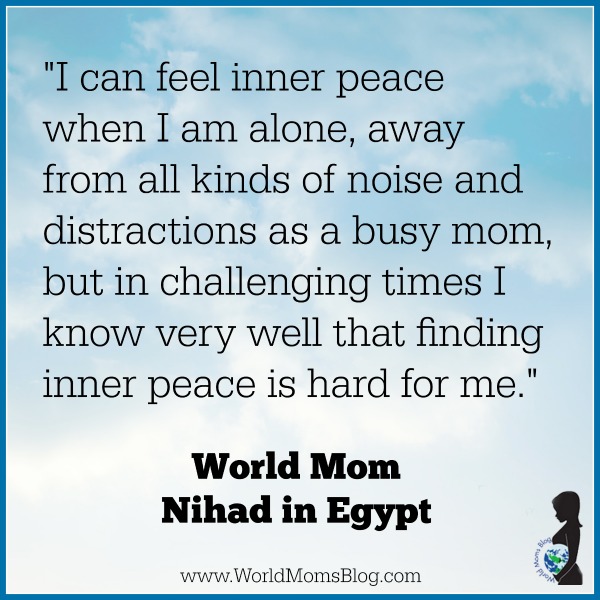
In the past, balancing my demanding career as a software engineer with all the other commitments a working woman and mother has, I know very well that finding inner peace in challenging times is not so easy. With a busy schedule at work and at home and with deadlines to meet and projects’ plans to complete inner peace is a very far away destination to reach, especially when we don’t have any tools for support.
Why do we need to find inner peace?
“We can never obtain peace in the outer world until we make inner peace with ourselves.” Dalai Lama
According tho this quote, it’s not only about how we feel inside. Our relationship with the outer world, as well, is affected by how peaceful we are in the inside. So, we need to find our inner peace first to live in peace with all of our surroundings.
I can feel inner peace when I am alone, away from all kinds of noise and distractions as a busy mom, but in challenging times I know very well that finding inner peace is hard for me.
It also depends on the kind of challenges I am facing and working to overcome. I also found that I need to be clear about what inner peace means to me. I simply consider the definition of inner peace, or peace of mind, as the opposite of being stressed or anxious. In very challenging situations, I lose my inner peace, become so stressed and sometimes helpless. There have been times when I found myself yelling at the kids most of the time, and I felt bad about myself after that.
What helped me is gaining clarity and awareness about the situation that I was stressed about. For me, it was the demands of working as a software engineer paired with the demands of raising my children.
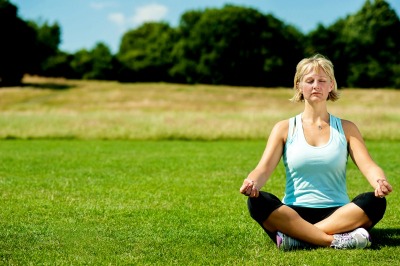
Six Questions to Help You Find Inner Peace
Recently, I had the opportunity to attend a webinar that was discussing how we can regain our inner peace in challenging times. The facilitator discussed how answering 6 key questions in any challenging situation can bring us closer to inner peace. Do you have your pens out? I’m about to take you through her questions, so jot down your answers!
1. “What is the reality about the situation?”
Naming what exactly is going on in simple statements is the first step to gain clarity.
2. “What am I resisting?”
Stress is definitely due to some kind of internal resistance. It can be resistance of change because of fear of unknown. Change takes us to ambiguous results and the fear of these results creates resistance. It can be resistance of taking action. It will be different for everyone. Do you know what it is for you?
And, “What if I continue resisting?”
Figuring out what you may be continuing to resist and where this resistance will take us is another way to gain clarity.
3. “What can I appreciate?”
Creating a sense of gratitude to help figure out what positive side there is in the challenging situation is key. It may be strengthening our will power, stretching our comfort zone, allowing us to discover more about our capabilities and strengths.
4. “What are my options?”
In any situation we have several options to consider. We may think that we don’t have any choices, but actually, if we think deeply we will find some options. Just knowing we are able to choose makes us feel in control, which brings us closer to feeling peaceful.
5. “What will I consciously choose?”
At the end, it is up to us to consciously choose one of the options we have created for ourselves in this self-survey. It is an option of our own, not suggested or imposed by anybody. This can make you feel more in control. This sense of freedom can also attribute to helping us regain our inner peace.
We’ve gotten there together, but really, you’ve done all the work. Take a deep breath again. Now, how do you feel?
These questions are from the “5 Keys to Inner Peace NOW” checklist built by Mary Allen, America’s Inner Peace Coach. I believe these questions can be very helpful to figure out what is stressing us out and what to do to feel peaceful, even in hard times.
Do you have any other tools or experience with finding your inner peace in challenging times?
This is an original post for World Moms Blog by Nihad from Alexandria, Egypt. Nihad blogs at Aurora Beams Life Coaching.
Image courtesy of “Middle Aged Woman Doing Meditation” by stockimages, FreeDigitalPhotos.net

Nihad is an Egyptian woman, who was born and has lived her whole life in Alexandria, Egypt. She says, “People who visited this city know how charming and beautiful this city is. Although I love every city in Egypt, Alexandria is the one I love the most.”
She is a software engineer and has worked in the field for more than twenty years. But recently she quit her job, got a coaching certificate and she is now a self employed life and career coach. She says, “I believe that women in this era face big challenges and they are taking huge responsibilities. That's why I have chosen my niche -- women looking for happiness and satisfaction. I help and support them in making whatever change (career change, life change, behavior change, belief change…) they want to bring more satisfaction and happiness in their lives.”
Nihad is a mother of two lovely boys, 15 and 9 years old. She states, “They are the most precious gifts I have ever had. I madly love them, and I consider them the main source of happiness in my life.”
Our inspiring mother in Egypt can also be found at Aurora Beams Life Coaching.
More Posts























